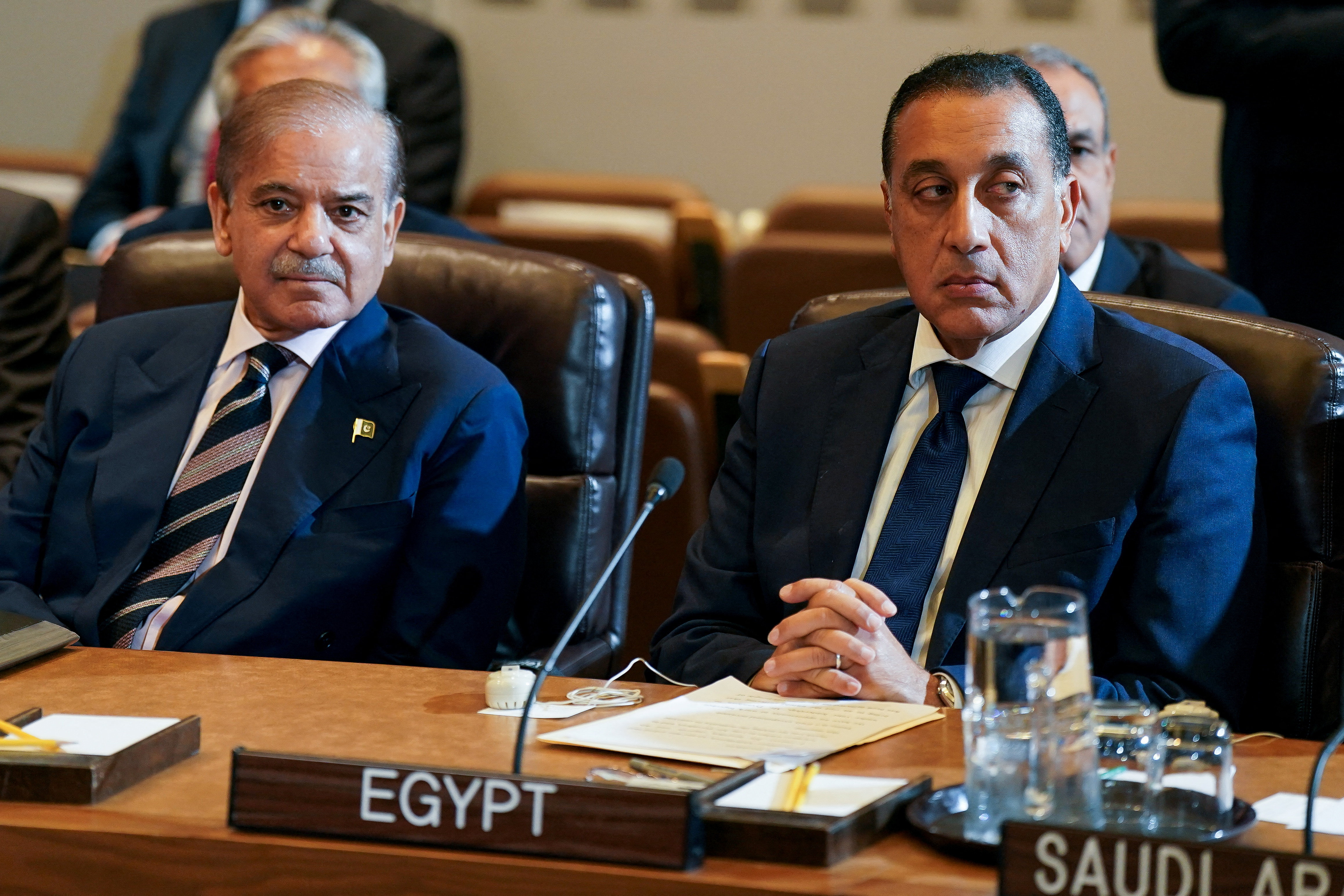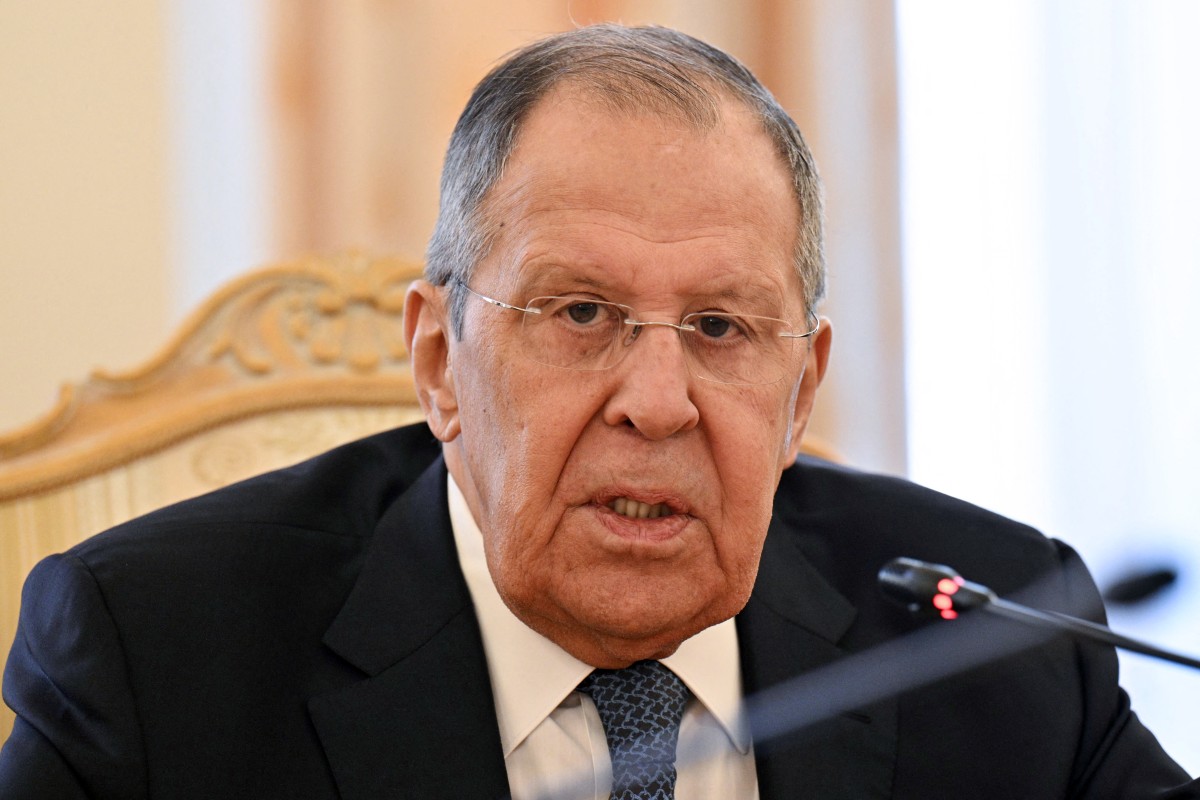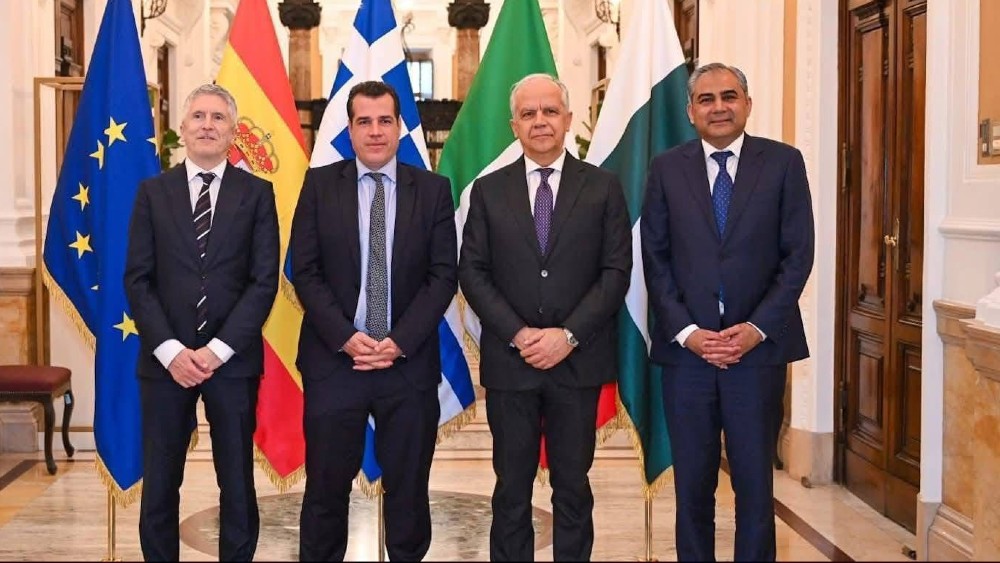ISLAMABAD: The Organization of Islamic Cooperation Contact Group at a UN General Assembly sidelines meeting in New York reaffirmed support for Kashmiris’ right to self-determination, Pakistan’s Ministry of Foreign Affairs said.
The session, chaired by the OIC Secretary-General, was attended by foreign ministers and senior officials from Azerbaijan, Pakistan, Türkiye, Saudi Arabia, and Niger.
Pakistani Prime Minister’s Special Assistant Syed Tariq Fatemi, along with representatives of Kashmiri organizations, briefed the group on the latest developments in the region.
The Foreign Office (FO) said the OIC “reaffirmed their unwavering support for the Kashmiri people's inalienable right to self-determination, as enshrined in the relevant UN Security Council resolutions.”
It said the ministers “expressed solidarity with the government and people of Pakistan, and indicated their deep concern over the recent military escalation in the South Asia region.
This included the “unjustified strikes carried out on multiple locations in Pakistan and Azad Jammu and Kashmir, and stressed the need to exercise maximum restraint and avoid actions that would destabilize the region.”
They “welcomed the ceasefire between the two sides” and “appreciated the constructive efforts made by all countries to mediate.”
Peace contingent upon final settlement
The FO said that developments since the April 22 Pahalgam attack indicate that “durable peace and stability in South Asia will remain contingent upon the final settlement of the Jammu and Kashmir dispute in accordance with the relevant UN Security Council resolutions and aspirations of the Kashmiri people.”
The communiqué voiced concern over around 2,800 arrests and about three dozen houses demolished in Jammu and Kashmir.
It also noted serious concerns over the detention of Kashmiri leader Shabbir Ahmed Shah, and “denounced the curbs on the religious congregations at Srinagar's historic Jamia Masjid and Eidgah.”
The FO added that the ministers “reiterated their rejection of illegal and unilateral actions taken by India on 5 August 2019,” and stressed that “any electoral exercise in IIOJK [Indian Illegally Occupied Jammu and Kashmir] … cannot serve as a substitute to the grant of the right to self-determination,” and “denounced the curbs on the religious congregations at Srinagar's historic Jamia Masjid and Eidgah.”
Fact-finding mission requested
The OIC directed its Observer Missions in New York and Geneva to circulate the Joint Communiqué to member states and UN officials to “highlight the plight of the Kashmiri people at various international fora,” and “further requested the OIC-Independent Permanent Human Rights Commission to dispatch a fact-finding mission to Azad Jammu and Kashmir and Line of Control,” said the FO.
The communiqué welcomed the OIC Special Envoy’s April visit to Pakistan and Azad Jammu and Kashmir and urged the OIC Human Rights Commission to send a fact-finding mission to the Line of Control.
Member states “reiterated their rejection of illegal and unilateral actions taken by India on 5 August 2019,” and stressed that any elections “cannot serve as a substitute” for self-determination, and urged India to release political prisoners and repeal “restrictive and draconian laws,” the ministry said.
They urged India to “improve the human rights situation in IIOJK Kashmiri political prisoners, lift the ban on the outlawed Kashmiri political parties, repeal all restrictive and draconian laws.”
OIC further called on India to “implement the relevant UN Security Council Resolutions on Jammu and Kashmir.”






